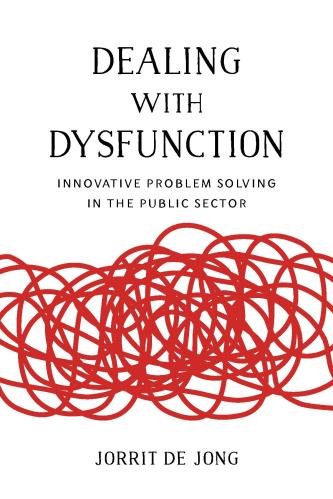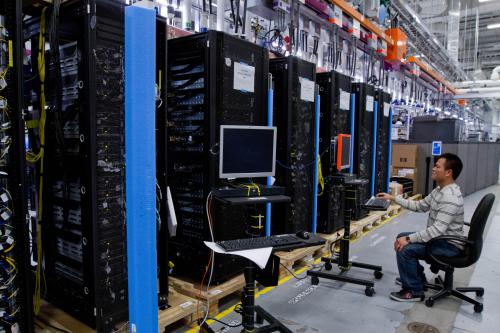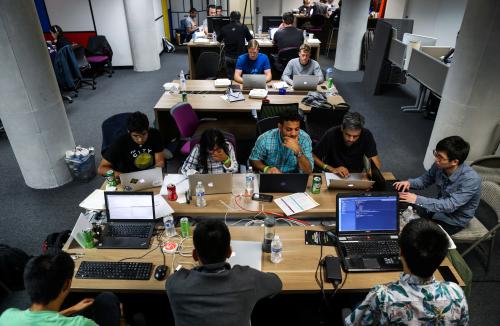Just about every major technology player is investing serious financial and human capital in pursuit of advances in cognitive computing. The National Science and Technology Committee on Technology released a much-anticipated report on how to prepare for the future where we have mature artificial intelligence systems. The report, Preparing for the Future of Artificial Intelligence, outlines specific implications that artificial intelligence will have when it comes to transforming our society and outlines twenty-three recommendations for federal agencies to consider.
Computers that think and work like humans will change the nature of our public agencies, from how they are designed and managed to the delivery of public services and the management of public goods. We have good reason to believe that there will be significant benefits to be had from cognitive computing solutions. Given the growing rate of data creation, it will be impossible for us to simply rely on human decision-makers. And, in many instances, machines will be able to outperform humans in complex task environments. The White House report anticipates that in the next 20 years, machines are likely to reach and exceed human performance on many tasks.
According to IBM researchers, cognitive computing “aims to develop a coherent, unified, universal mechanism inspired by the mind’s capabilities”. These systems are designed to learn, adapt, and optimize solutions based on their interactions with humans and their environment. Cognitive computing systems are built to mine both structured and unstructured data and offer hypotheses and solutions for consideration by humans. Cognitive computing systems thrive on massive amounts of data: the more they have access to, the better they can arrive at useful analysis. In addition, these systems also rely on humans to train them, known as supervised learning. Domain experts interact with the system to provide input on decision-making patterns and outcomes. Over time, the system learns to mimic these features, and improves its accuracy.
Cognitive computing applications are being applied in several sectors. The Finland Hospital District of Helsinki and Uusimaa (HUS) and IBM are working together to identify serious bacterial infections in prematurely born babies. The Finland HUS is also working on ways to employ cognitive computing to provide personalized cancer treatments for patients. Hong Kong’s Mass Transit Railway employs a cognitive computing system to assign engineering tasks across the transit system. During a typical week, about 10,000 people carry out around 2,600 engineering tasks ranging from smoothing rails to replacing tracks. The cognitive system saves about two days per week by optimizing scheduling of tasks and allocation of resources.
Will the public sector be able to take advantage of developments in cognitive computing? We are cautiously optimistic, but several issues need to be carefully considered.
Cognitive computing systems performance depends upon democratization of data, i.e. data that is integrated across agencies and is available for finding optimized solutions to policy challenges. Traditionally, public agencies are structured to carry out their operations in silos, and each agency often develops legacy systems that achieve their organizational goals. The U.S. Government Accountability Office noted that duplicate and disparate systems are common issues in the public sector.
Early indications point to the fact that these systems will fundamentally differ from our existing information technology systems in two distinct ways. First, they will span broader domains, having greater coverage than traditional activity or task-specific technologies. As such, they will need to be developed across agencies and focused on broader issues that will gain from integrating databases of individual agencies. Second, these systems will require human workers to actually train these systems. Hence, the old model of building a system and delivering it to the agency is obsolete. The system is never completely built, but will continue to improve over time, assuming it receives data and expert feedback. The manner in which these systems are governed and financed will require rethinking of not only current technology acquisition procedures but also their ownership and maintenance.
Fundamental questions will need to be addressed when it comes to ethical issues. Predictive algorithms are designed to spot and learn from trends, and can learn and adapt themselves based on human behavior. Unfortunately, algorithms can become biased based on trends in the data. For example, Google’s online advertisement selectively showed high paying jobs to men compared to women. Research has shown us that arrest records are more likely to show up on searches involving distinctively African-American names. Currently, our methods for detecting these biases upfront are limited. The algorithms that go into these systems are rarely inspected from an ethical or policy perspective. Developers of these systems will need to open up these systems for inspections, which is quite contrary to how these systems are currently being developed and deployed.
Finally, it is important to remember that much of the data explosion and data being generated is happening ‘around’ and not ‘within’ the public sector. Today, there is an absence of clear frameworks on how should this data be used within agencies, both from an operational and policy perspective. Will public agencies be given access to this data? If given access, how does a public agency verify the authenticity and completeness of the dataset? These are nontrivial issues that have ethical, intellectual property, and public good dimensions.
With all emerging technologies, cognitive computing systems require our attention and scrutiny. It is important to develop strategies and safeguards to mitigate unintended consequences. There is no doubt that these technologies will change how we think about the public sector, the design, implementation, and evaluation of public services, and the management of public goods. To ensure that these technologies are used for their intended outcomes, we must develop policy, legal, and ethical frameworks in conjunction with technical advances.
The Brookings Institution is committed to quality, independence, and impact.
We are supported by a diverse array of funders. In line with our values and policies, each Brookings publication represents the sole views of its author(s).











Commentary
How can cognitive computing improve public services?
October 13, 2016